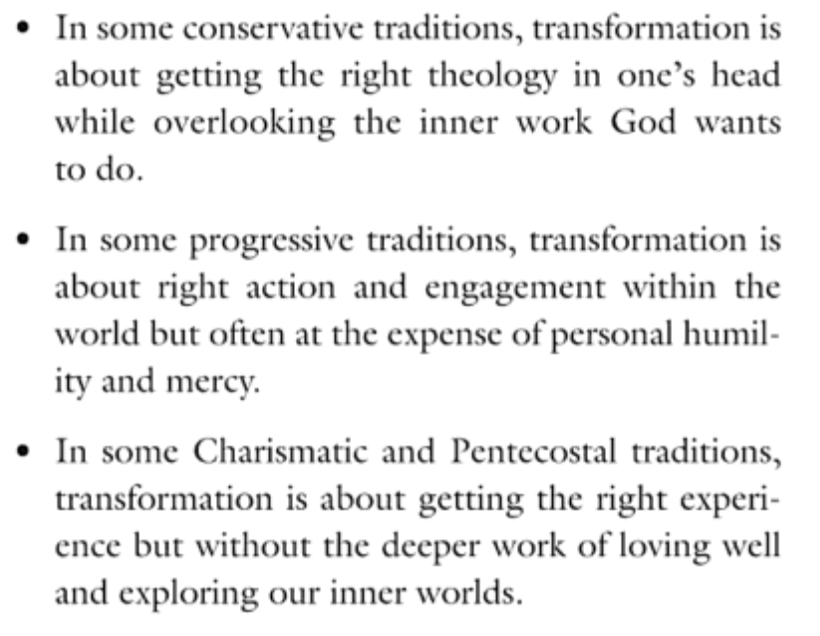Here is a quote from page xiv of this new book by Rich Villodas. This book was listed as Christianity Today’s book of the year 2020. The author has been on a personal journey of spiritual formation for nearly 30 years of his life. This book is insightful and will be a blessing to your spiritual formation.


Faith For Exiles by David Kennaman & Mark Matlock (Grand Rapids: Baker Books, 2019)
“Sugar has been a component within western diets since the sixteenth century. While 500 years ago, the average human would be lucky to come across sugar, it is estimated that today the average Westerner consumes 3 lb of sugar a week. Overall, our sugar consumption per year has risen from 5 lb per person, per year in 1700, to 152 lb per person in 2000. Recent research has found evidence that sugar, while not only bad for our waistlines, can have deleterious effects on our brain. Sugar has been found to shrink areas responsible for important functions such as memory and mood regulation, wearing on the hippocampus.”
Will you offer grace and compassion to those who feel terrified, angry, grief-stricken, or hopeless?
https://kurtbubna.com/troubling-times/
Whether your friend, neighbor, or pastor is right or wrong regarding an issue, will you first and foremost love others?
https://kurtbubna.com/troubling-times/
God deals with this Old Testament prophet on issues like race, nationalism, obedience, self-image, fear of death, trusting God and much more. The predominant theme, however, is our understanding of God’s grace and its impact on how we deal with others. So the question begs, how do you seek the welfare of your city, the one where God has strategically placed you? Keller offers 8 Qualities Of A Healthy And Prosperous City And Community in his book:
- A safe environment rather than a community that is plagued by crime or health hazards.
- Economic prosperity and humane workplaces rather than a community with few jobs where poverty is rampant.
- A state of peace rather than one marked by violence between individuals, races, groups, or nations.
- A just social order rather than one marked by corruption and by a justice system weighted against the weak and poor.
- Publicly available resources such as good educational institutions, medical services, parks, and recreation.
- Social harmony and civility in which people from different races, cultures, and moral frameworks relate to one another with respect.
- A community committed to caring for the weak, the elderly, the chronically ill, single parents and orphans, immigrants, and the poor.
- A government that works on behalf of all citizens, not just the rich and powerful.
You seek the welfare of your city by working toward these things. Which one can you impact the most today
Christ and calamity go together. As Jesus said: “In the world you will have tribulation. But take heart; I have overcome the world” (John 16:33). When calamity strikes, you need Jesus.
Harold L. Senkbiel
(2020).
Christ and Calamity: Grace and Gratitude in the Darkest Valley (2020).
(Bellingham, WA: Lexham Press, 2020)
“Not only does the experience of tragedy give us an exceptional opportunity for growth, but some sort of suffering is also necessary for a person to achieve maximal psychological growth. In his study of self-actualizers, the paragons of mental wellness, the famed humanistic psychologist Abraham Maslow noted that ‘the most important learning lessons… were tragedies, deaths, and trauma… which forced change in the life-outlook of the person and consequently in everything that he did.’”

Thanks
(New York: Houghton Mifflin Harcourt, 2008), 256
Wind fuels a fire and extinguishes a candle – Nassim Taleb

It Worked For Me by Colin Powell (New York: Harper Perennial, 2012)
The 13 Rules of Life from General Powell is worth the price of the book, especially the chapter on “Perpetual Optimism Is A Force Multiplier.” Here is a quick listing of the General Powell’s 13 rules…….
1. IT AIN’T AS BAD AS YOU THINK. IT WILL LOOK BETTER IN THE MORNING.
2. GET MAD, THEN GET OVER IT.
3. AVOID HAVING YOUR EGO SO CLOSE TO YOUR POSITION THAT WHEN YOUR POSITION FALLS, YOUR EGO GOES WITH IT.
4. IT CAN BE DONE.
5. BE CAREFUL WHAT YOU CHOOSE. YOU MAY GET IT.
6. DON’T LET ADVERSE FACTS STAND IN THE WAY OF A GOOD DECISION.
7. YOU CAN’T MAKE SOMEONE ELSE’S DECISIONS. YOU SHOULDN’T LET SOMEONE ELSE MAKE YOURS.
8. CHECK SMALL THINGS.
9. SHARE CREDIT.
10. REMAIN CALM. BE KIND.
11. HAVE A VISION. BE DEMANDING.
12. DON’T TAKE COUNSEL OF YOUR FEARS OR NAYSAYERS.
13. PERPETUAL OPTIMISM IS A FORCE MULTIPLIER.





